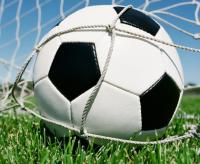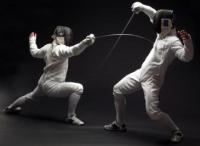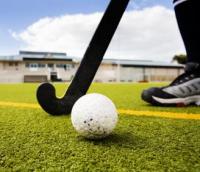Or search by topic
Number and algebra
Geometry and measure
Probability and statistics
Working mathematically
Advanced mathematics
For younger learners
Olympic Logic



These four problems require some logical thinking and a willingness to work systematically.
Can you deduce the missing information in each sporty situation?
Perhaps you might develop techniques in one that will help you to solve another.
1. Medals Count
Given the following clues, can you work out the number of gold, silver and bronze medals that France, Italy and Japan got in this international sports competition? 
- Japan has 1 more gold medal, but 3 fewer silver medals, than Italy.
- France has the most bronze medals (18), but fewest gold medals (7).
- Each country has at least 6 medals of each type.
- Italy has 27 medals in total.
- Italy has 2 more bronze medals than gold medals.
- The three countries have 38 bronze medals in total.
- France has twice as many silver medals as Italy has gold medals.
2. Football Champ
 Three teams A, B and C have each played two matches.
Three teams A, B and C have each played two matches.
Three points are given for a win and one point to each team for a draw.
The table below gives the total number of points and goals scored for and against each team.
Fill in the table and find the scores in each match.
| Teams | Games Played | Won | Drawn | Lost | Goals For | Goals Against | Points |
|---|---|---|---|---|---|---|---|
| A | 2 | 5 | 3 | 3 | |||
| B | 2 | 2 | 1 | ||||
| C | 2 | 3 | 2 | 4 |
3. Fencing Tournament
Alice, Becky, Charlotte, Daphne, Elsie and Fran decide to compete in a fencing tournament. Each competitor has to fence against every other competitor. A match results in either a win or a loss.
 No competitor lost all their matches, but one person won all their matches.
No competitor lost all their matches, but one person won all their matches.- Daphne won her match against Becky.
- Alice and Elsie won the same, odd, number of matches, but Alice lost to Elsie.
- Becky and Fran won a total of seven matches
- Charlotte won only one match, against the only other person who also won only one match.
Can you deduce what all of the results were?
4. Hockey

In a hockey competition, four teams were to play each other once. 2 points were awarded for a win, and 1 point for a draw.
After some of the matches were played, most of the information in the results table was accidentally deleted.
| Team | Played | Won | Drawn | Lost | For | Against | Points |
|---|---|---|---|---|---|---|---|
| A | 4 | 4 | |||||
| B | 5 | 5 | |||||
| C | 0 | 4 | 2 | ||||
| D | 0 | 3 | 0 |
Can you work out the score in each match played?
You may also like
Medal Muddle
Countries from across the world competed in a sports tournament. Can you devise an efficient strategy to work out the order in which they finished?
Tournament Scheduling
Scheduling games is a little more challenging than one might desire. Here are some tournament formats that sport schedulers use.
High Jumping
How high can a high jumper jump? How can a high jumper jump higher without jumping higher? Read on...

